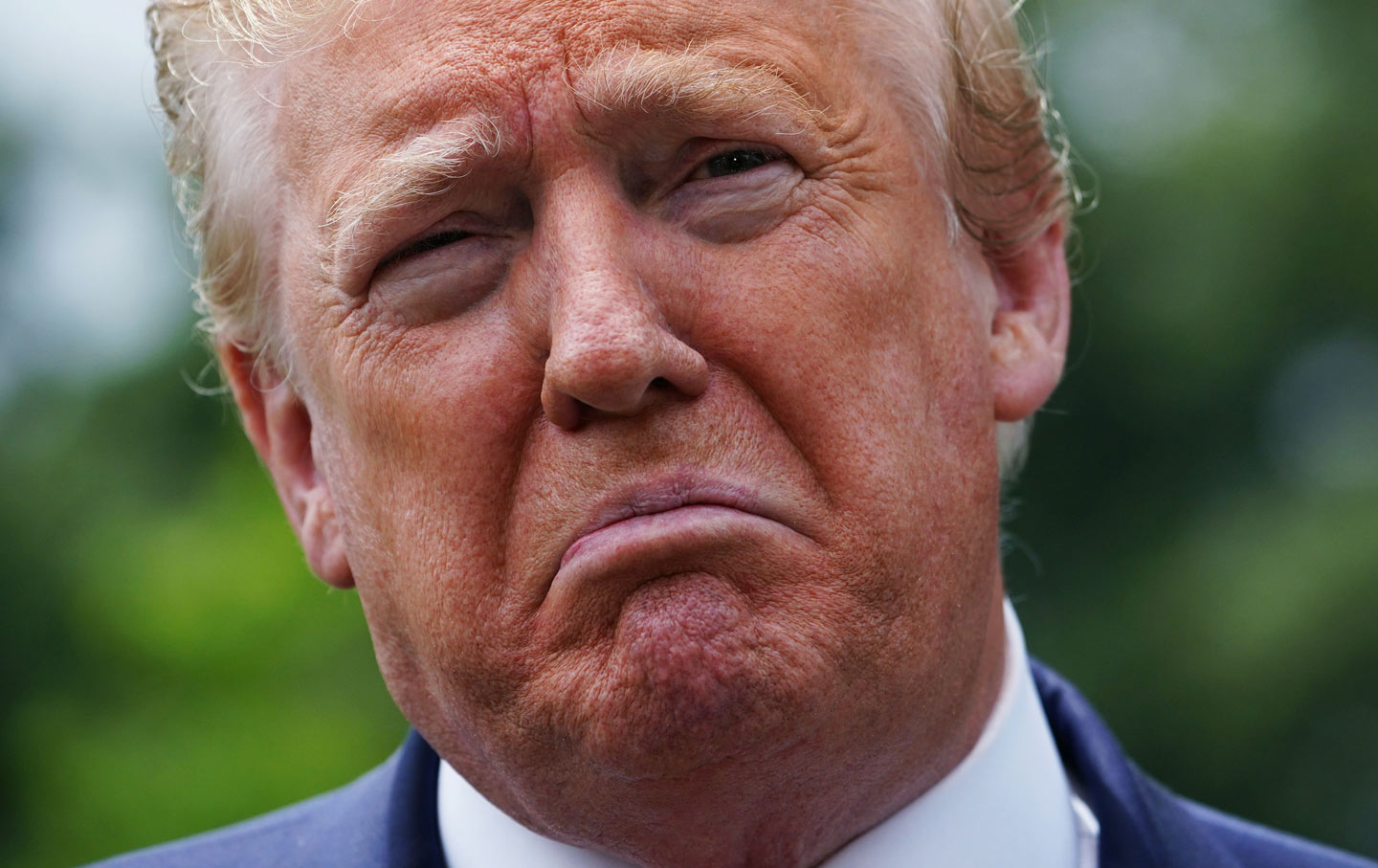
President of the United States Donald J. Trump.(Mandel Ngan / AFP via Getty Images)
On Thursday, President Trump announced his intention to withdraw from the Open Skies Treaty, a multilateral agreement among 34 countries that allows countries to conduct reconnaissance flights in order to provide transparency regarding military activities. That day, secretary of state Mike Pompeo issued a statement accusing Russia of serial violations of the treaty. Open Skies is but the latest in a series of treaties, international agreements, and norms that have been trampled underfoot by the elephantine Pompeo at the behest of Trump.
Experts now fear that with the INF and Open Skies treaties out of the way, Trump has his sights set on the Obama-era New START treaty, which caps the number of nuclear warheads deployed by the US and Russia at 1,550 each. Senator Jeff Merkley of Oregon warns, “If the Trump administration puts the New START Treaty on the chopping block next, it would leave us without constraints on Russian and U.S. nuclear arsenals for the first time in half a century, risking a disastrously expensive and dangerous arms race.” Merkley, who spoke to The Nation on Friday, says that while “nobody thinks Russia is a trustworthy actor,” treaties such as Open Skies are “nonetheless important tools to improve our visibility into what our adversaries are doing and to reduce possible catastrophic miscalculations.”
And that’s the point of Open Skies: Allowing for reconnaissance flights at short notice lessens the uncertainty about the intentions of adversaries and acts as a safeguard against a potentially devastating miscalculation.
Progressive congressman Ro Khanna also denounced the move. Khanna told The Nation, “If there was ever a moment to strengthen our international ties, this is it. The last thing the world needs is more instability. This decision undermines global arms control efforts, and only makes war more likely.”
Praise for the move came from the usual suspects. Neoconservative former national security adviser John Bolton praised the decision as “another great moment in arms control history if and when it happens!” Bolton himself, of course, deserves plenty of blame for setting this train in motion, after all, as undersecretary for arms control and verification under George W. Bush, Bolton successfully pushed for US withdrawal from 1972 Anti-Ballistic Missile Treaty.
Alexandra Bell, a former State Department official with the Center for Arms Control and Non-Proliferation, told me that in her view “this is just another in a series of actions that prove the administration isn’t just interested in dismantling treaties. It is in the business of devaluing alliances and proving that America First is America alone.” Bell expressed incredulity that the administration would be so reckless as to abandon Open Skies, which in her view “provided valuable insight into military force movements from Vancouver to Vladivostok.”
“It defies logic that we would throw it out,” said Bell.
Appearing on Fox News on Thursday evening, national security adviser Robert C. O’Brien claimed that the treaty provided “‘Open skies’ for the Russians to fly over the United States, but ‘closed skies’ for the United States to fly over Russia.” O’Brien contended that the Russians were violating the treaty by surveilling civilian infrastructure.
Yet Bell disputes this. “The treaty doesn’t prohibit what you can take pictures of,” she said. “We are on plane with the Russians and they have to share what they’ve surveilled with us. We also overfly Russia at three-times the rate they overfly us.” The end result is that the United States will lose access to valuable intelligence.
Meanwhile, Russian Deputy Foreign Minister Alexander Grushko criticized the decision. “The withdrawal of the US from this treaty will come as yet another blow to the system of military security in Europe, which is already weakened by the previous moves by the administration,” Grushko told the Russian state news agency Tass.
On this the Russians and our European and Canadian allies find themselves in agreement. And once again, Trump has made the United States the odd man out.
But still worse, withdrawing from Open Skies is the latest (and may not be the last) assault on arms control by President Trump. Important pillars of the global nuclear nonproliferation and arms control and verification regimes—painstakingly erected over the course of decades—have been abandoned by the last two Republican administrations, with potentially catastrophic consequences for future generations.
James CardenJames W. Carden is a contributing writer for foreign affairs at The Nation. He served as a policy adviser to the Special Representative for Intergovernmental Affairs and the Office of Russia Affairs at the US State Department.